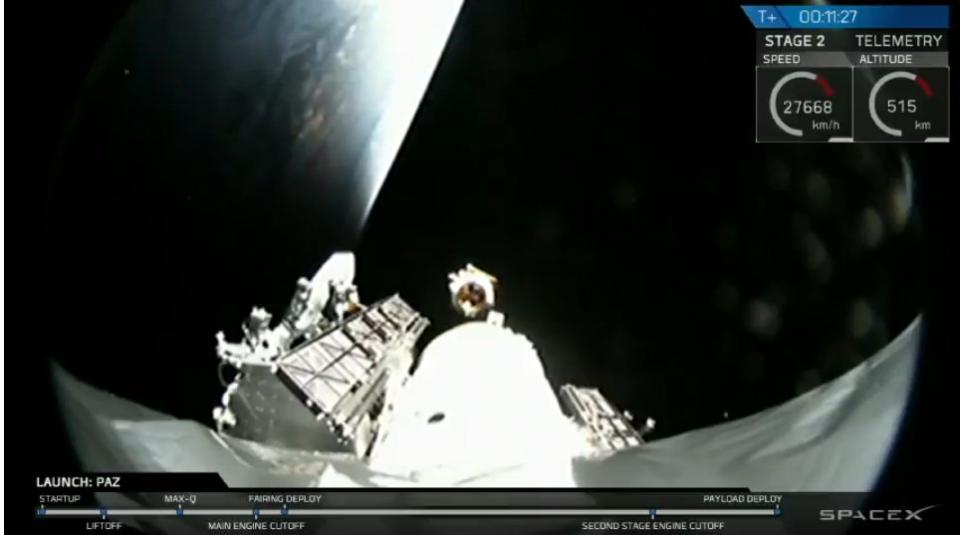SpaceX successfully launches Falcon 9 carrying internet satellites
The company wants to use thousands of them to deliver internet around the world.
SpaceX successfully launched another Falcon 9 rocket today carrying Spain's radar imaging Paz satellite as well as two of its own satellites, Microsat-2a and -2b. The two experimental satellites will be used to test SpaceX's plan to deliver internet to people around the globe through thousands of low-orbit satellites.
Today's Falcon launch carries 2 SpaceX test satellites for global broadband. If successful, Starlink constellation will serve least served.
— Elon Musk (@elonmusk) February 21, 2018
In addition to deploying those payloads, SpaceX also attempted to recover the rocket's nosecone -- a piece of the rocket that protects the cargo during launch that the company hasn't tried to recover during previous launches. A new barge called "Mr. Steven," outfitted with a large net, waited for the nosecone, or fairing, to return back to Earth. However, Elon Musk tweeted that the boat wasn't able to catch the nosecone -- it missed by a few hundred meters -- but the nosecone landed intact in the water. If SpaceX can collect and reuse this particular part during future launches, it could save as much as $6 million per launch. Today's launch was initially scheduled for last Saturday, but had to be rescheduled twice, first for more testing and then again due to heavy winds.
A post shared by Elon Musk (@elonmusk) on Feb 22, 2018 at 6:07am PST
The launch took place at Vandenberg Air Force Base earlier this morning. We'll update this post once we have information about the deployment of the two Microsats.



